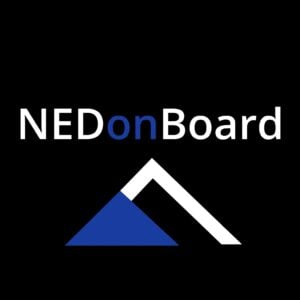The importance of ESG (environmental, social and governance) issues has gained recognition in the past few years. Driven by pressure from investors and regulators, FTSE boards tend to be more advanced than boards of medium-sized businesses when it comes to ESG. But as expectations from customers and other stakeholders are increasing (and the COVID-19 crisis has accelerated this trend), it is crucial for all modern and effective boards to embrace sustainability and ESG considerations.
As your boards start considering ESG issues, a few challenges arise, notably what ESG covers and therefore where to start! In this blog article, we highlight a possible roadmap for NEDs and board members to start bringing ESG considerations into board discussions and debates. Sustainability and ESG considerations are here to stay and it is imperative for your boards to start their journey now, if they have not already.
A 5-step process
Step #1: The journey starts with an assessment of ESG issues relevant to your company. The assessment may take the form of an offsite or a workshop and a number of divisions such as Sales, HR, Operations, Finance, Procurement, etc. should be involved. A multi-discipline approach is necessary to capture all ESG issues. Best practice is for NEDs to take part in the assessment exercise.
Step #2: Involved parties should assess the materiality of each of the ESG issues identified. Material ESG issues should be reviewed and approved by the board.
Step #3: Collect information and data, with the support of an identified internal owner for each of the material ESG issues.
Step #4: Build company-specific indicators to articulate the ESG strategy, which should be debated and approved by the board. Targets and goals should be set by the board.
Step #5: Communicate on your ESG strategy, indicators, goals and results by disclosing and reporting to your stakeholders. It is important for boards to engage with their stakeholders and tell their ESG story to turn ESG issues into opportunities that drive the long-term success of the company. Transparency is a competitive advantage as demand for ESG issues to be considered has increased.
Best practices
There is no common reporting framework and boards may struggle to identify the best model for measurement and reporting. That said, it is important for boards to identify relevant and materials ESG issues and explain in the narrative of the annual reports what actions have been taken, what measures have been used and what scores have been achieved.
Additional resources:
Incorporating climate change into boards’ agenda
How effective engagement with your stakeholders can be a differentiator?
Culture, diversity and inclusion for board members
Written by Elise Perraud, NEDonBoard COO
NEDs and boards interested in finding out how NEDonBoard can support you in training your board of directors with regards to ESG risks and opportunities, please contact [email protected].
Want to know more?
- New to the NED role? Watch our acclaimed webinar, How to secure your first non-executive director role.
- Already committed to becoming a non-exec and want a roadmap to achieve this objective? Sign up to the NED Accelerator Programme by NEDonBoard. We applied years of accumulated knowledge and worked with experienced NEDs and chairs to deliver practical and actionable content to support you in transitioning with confidence and success.
- Already on a board? Join NEDonBoard, the Institute of Board Members as a member or contact [email protected] for training opportunities aligned with your objectives and aspirations.
- You may also sign-up to the weekly newsletter (non-member) to receive relevant updates and read about NED roles on offer.




